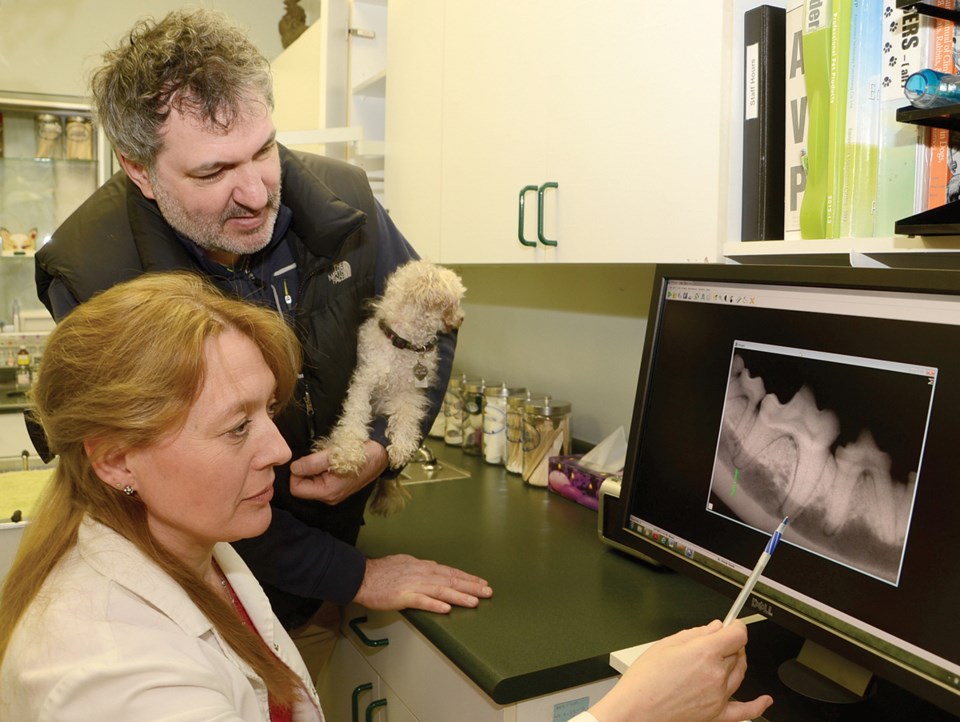Dental care for your old pal Rex or Fido is important and, just like humans, shouldn’t be put off or ignored before you’re forced to take a trip to the vet.
Wendy Royle, a veterinarian at the Park Gate Animal and Bird Hospital in North Vancouver, says keeping a dog’s teeth healthy is important.
“Dental health is one of the biggest issues we deal with,” says Royle. “It’s a preventable disease.”
We asked her for some tips about doggie dental care.
At-home examinations
If your dog is OK with it, a quick exam at home can include checking your dog’s mouth for signs of stress, infection or inflammation.
“You can look at the gums and the teeth and actually see that the gums are healthy,” says Royle. Look for a healthy pink in the gums and that the teeth are clean, they should generally look as clean as human teeth. Tartar build-up and inflammation can be visible.
Bad breath
Severely stinky breath can point to bacteria building up inside the mouth, which leads to a number of dental diseases and can even lead to health problems in the rest of the body.
Tartar can become quite hard to the point where it can’t be brushed off, explains Royle. “Tartar will have a lot of bacteria in it,” says Royle. “As things progress you can have a lot of bacteria in the gums and tartar.”
If it’s left to sit and develop the bacteria will grow leading to possible infection in the gums and roots of the teeth to the point of being able to visually see puss developing along the gum-line, she says.
Knowing your pet
Royle says there are ways to avoid dental disease in dogs starting with knowledge of the breed.
“Some dogs, just like some people, are more genetically prone to developing tartar and dental disease than others and that’s just a fact,” she explains.
Generally, smaller breeds such as poodles or Chihuahuas historically have bad luck when it comes to their mouths, but that’s not to say larger breeds aren’t affected as well.
“I find that greyhounds seem to be prone to fairly severe dental disease,” says Royle, adding there are breeds predisposed to dental problems.
Royle also recommends visiting a veterinarian for a physical exam of the dog’s mouth.
Or, for the really committed owner, you can get in there yourself with a brush.
“Brushing really, really does help, but it’s a big commitment,” says Royle. “Some people are really great at it, and you can always tell if somebody is brushing their dog’s teeth. There’s no question that it helps.”
Doggy diet
Some dog food is designed with dental health in mind.
“Some brands have mechanical scraping of the teeth. It’s not that it’s extremely hard, it’s more like it’s kind of fibrous and the tooth goes down into the kibble and it’s abrasive but not to the point that it’s damaging,” says Royle. “Some of them also have an enzyme, a naturally occurring enzyme that helps to reduce the amount of tartar build-up.”



